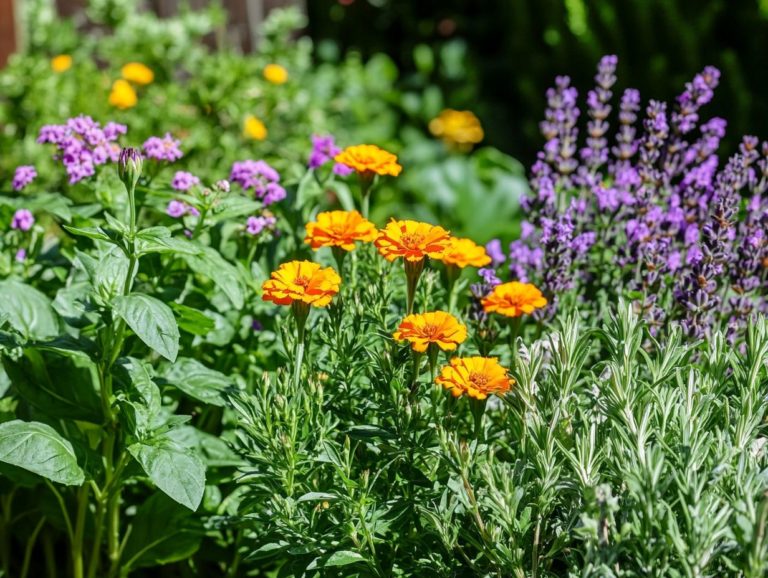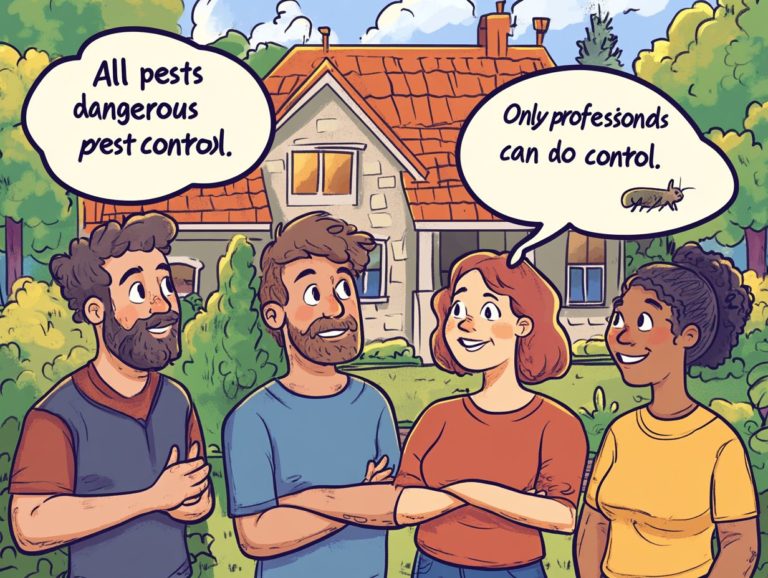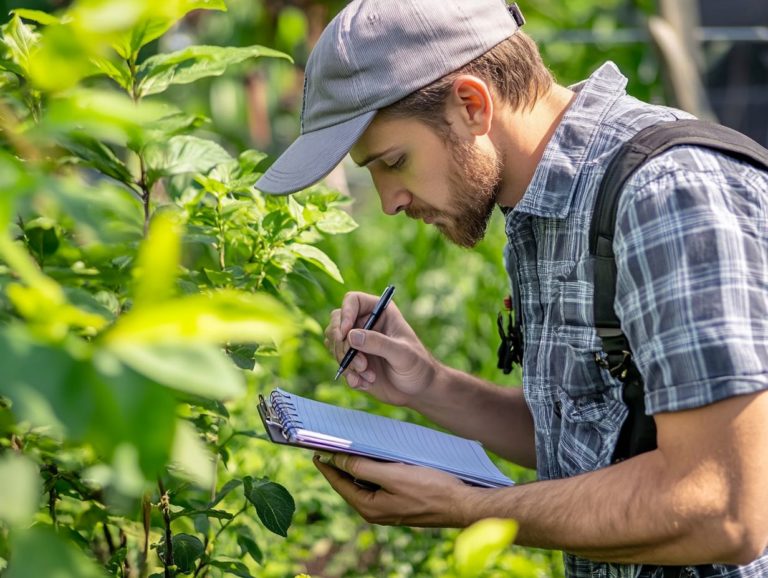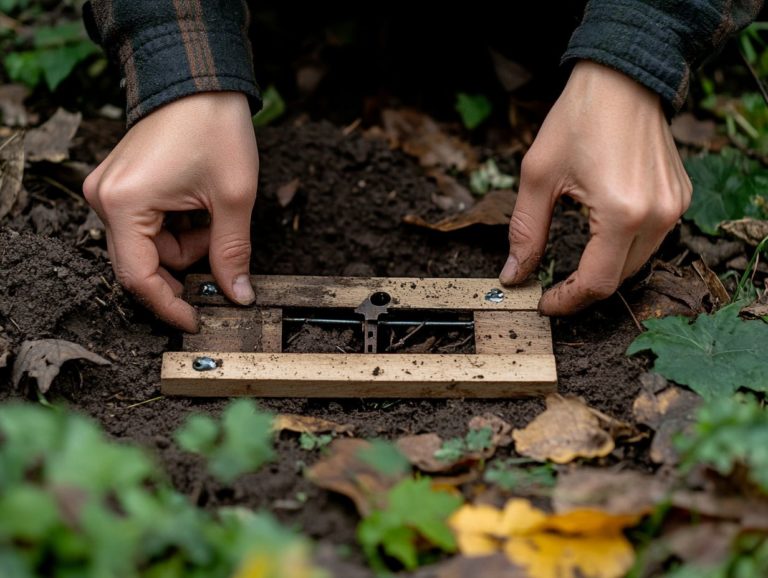Identifying Common Fungal Pests in Gardens
Fungal pests can disrupt your garden’s harmony. Left unchecked, they can affect the health of your plants.
Recognizing the signs of these pests is crucial. Understanding their effects allows you to manage them effectively.
This guide offers vital information on common fungal pests, like powdery mildew and rose rosette disease. You will also find effective prevention strategies, treatment options natural and chemical and long-term management methods.
Use this knowledge to protect your garden and ensure its beauty.
Contents
- Key Takeaways:
- Common Types of Fungal Pests
- Preventing Fungal Pests in Gardens
- Effective Gardening Practices
- Treating Fungal Pests in Gardens
- Management and Control of Fungal Pests
- Frequently Asked Questions
- Curious about common fungal pests in your garden?
- How can I identify powdery mildew in my garden?
- What is black spot and how do I know if my plants are affected?
- How do I spot blight in my garden?
- What are some preventative measures I can take to avoid fungal pests in my garden?
- Are there any natural remedies for treating fungal pests in gardens?
Key Takeaways:
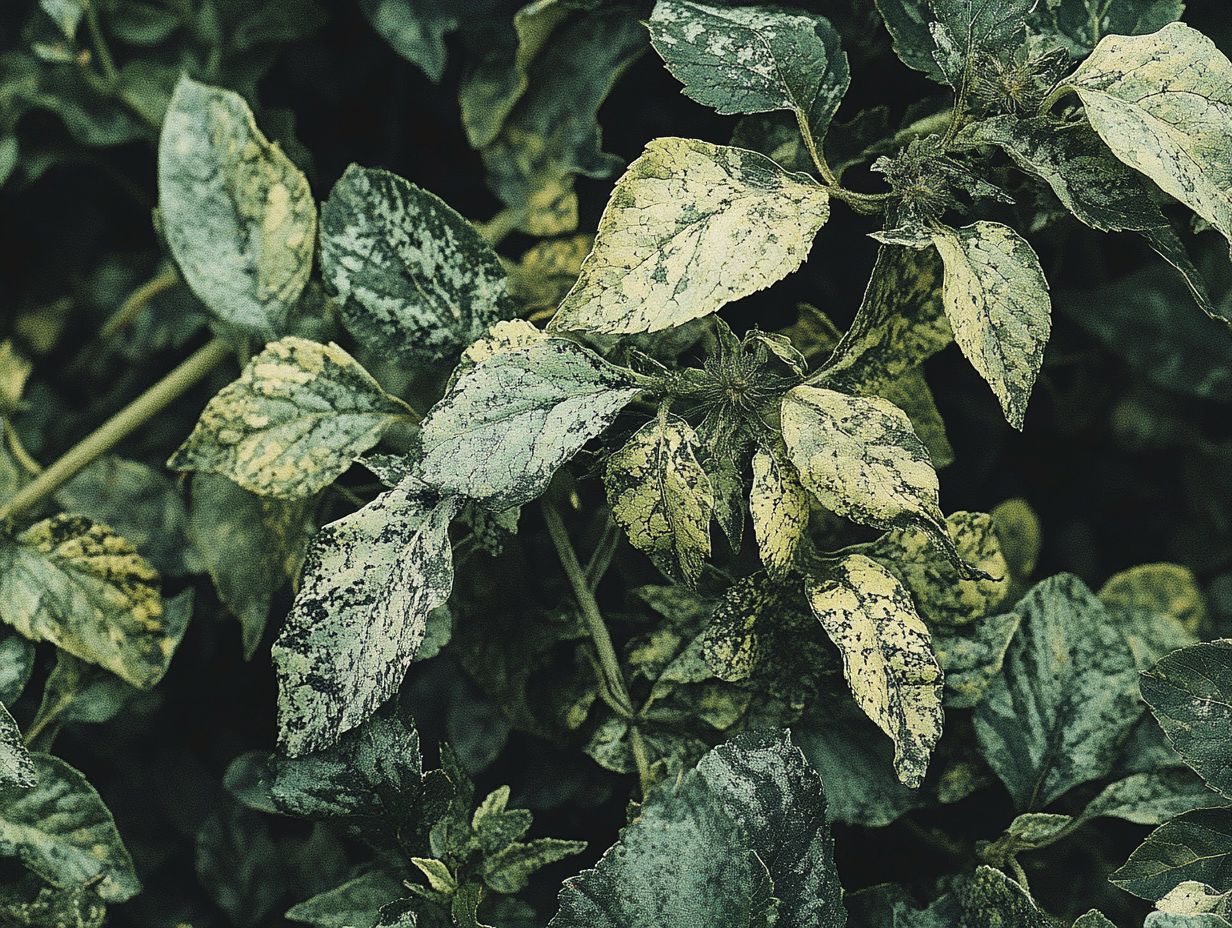
- Fungal pests can damage gardens. Identifying them is key to prevention and treatment.
- Good gardening practices reduce the risk of infestations.
- Both natural and chemical treatment options are available, but long-term management is essential.
What are Fungal Pests?
Fungal pests can be a major challenge for home gardeners. They can harm the health of your plants in many ways.
These organisms thrive in various conditions. For example, downy mildew grows in damp areas, causing unsightly spots on leaves.
Combat these issues using effective pest management methods. These include:
- Crop rotation
- Proper spacing
- Using resistant plant varieties
Keep a close watch on your plants for early signs of infection. This vigilance can protect the ecosystem of your garden.
Common Types of Fungal Pests
Understanding common fungal and insect pests is crucial for a thriving garden. Common issues include powdery mildew, rose rosette disease, and black spot.
Identifying Different Types
Knowing the types of fungal pests helps manage plant diseases effectively. Early detection leads to timely treatments.
Look for signs like leaf discoloration, wilting, and unusual growth. Familiarity with these symptoms allows for targeted treatments.
Recognizing common indicators like powdery mildew or root rot aids in diagnosis and treatment choices. Good plant care practices can reduce the risk of infestations.
Preventing Fungal Pests in Gardens
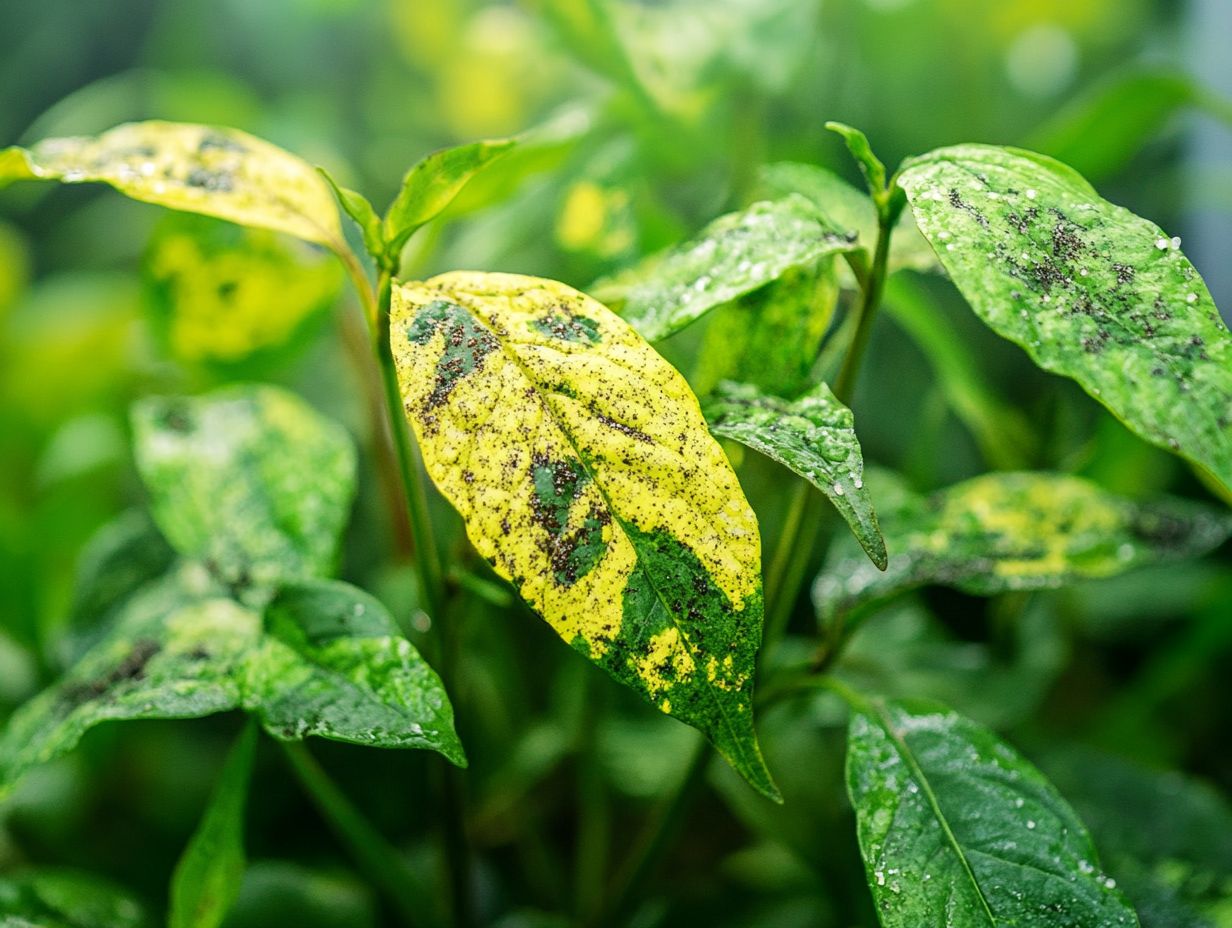
Preventing fungal pests is vital for garden health. Effective prevention strategies include maintaining garden hygiene, optimizing soil conditions, and improving airflow.
Effective Gardening Practices
Adopting effective gardening practices is crucial for preventing and managing fungal pests, ensuring your plants remain healthy throughout the growing season.
Techniques like proper pruning and good compost practices not only enhance plant care but also help maintain optimal conditions in your garden.
Implementing crop rotation can significantly disrupt the life cycles of pests, effectively reducing their populations. Selecting disease-resistant plant varieties is vital for fostering resilience against fungal infections.
By regularly observing your plants, you can catch issues early on, especially through proper identification methods. Plus, using natural fungicides, such as neem oil, allows you to mitigate outbreaks without harming beneficial insects.
Proper watering practices are essential as well watering at the base of the plants instead of from above helps keep the foliage dry and further combat fungal growth. Together, these strategies create a healthier gardening ecosystem, ultimately leading to thriving plants.
Treating Fungal Pests in Gardens
Treating fungal pests in your garden demands a thoughtful strategy that blends natural and chemical treatment options. Effective solutions like using fungicides, such as Earth s Ally and Daconil Fungicide, significantly reduce the impact of these pesky invaders.
When tackling fungal pests, you can choose between natural methods, such as using neem oil, and chemical options like Daconil Fungicide. This allows you to align your approach with your gardening philosophy and values.
If you lean towards organic gardening, you might prefer natural treatments. However, chemical fungicides provide immediate relief for more severe infestations.
For those who champion sustainable practices in gardening, natural remedies like neem oil or garlic sprays are effective tools against pests. These solutions address fungal issues while preserving the surrounding ecosystem’s health. Don’t forget that while chemical options may deliver quick results, they can come with drawbacks, such as harming beneficial insects or causing long-term soil problems that disrupt your garden’s balance.
Recognizing the significance of disease prevention enables you to make informed choices for your plants. Whether you opt for organic methods or conventional ones, effective gardening advice underscores the value of integrated pest management, promoting a balanced approach tailored to your garden’s unique needs.
Management and Control of Fungal Pests
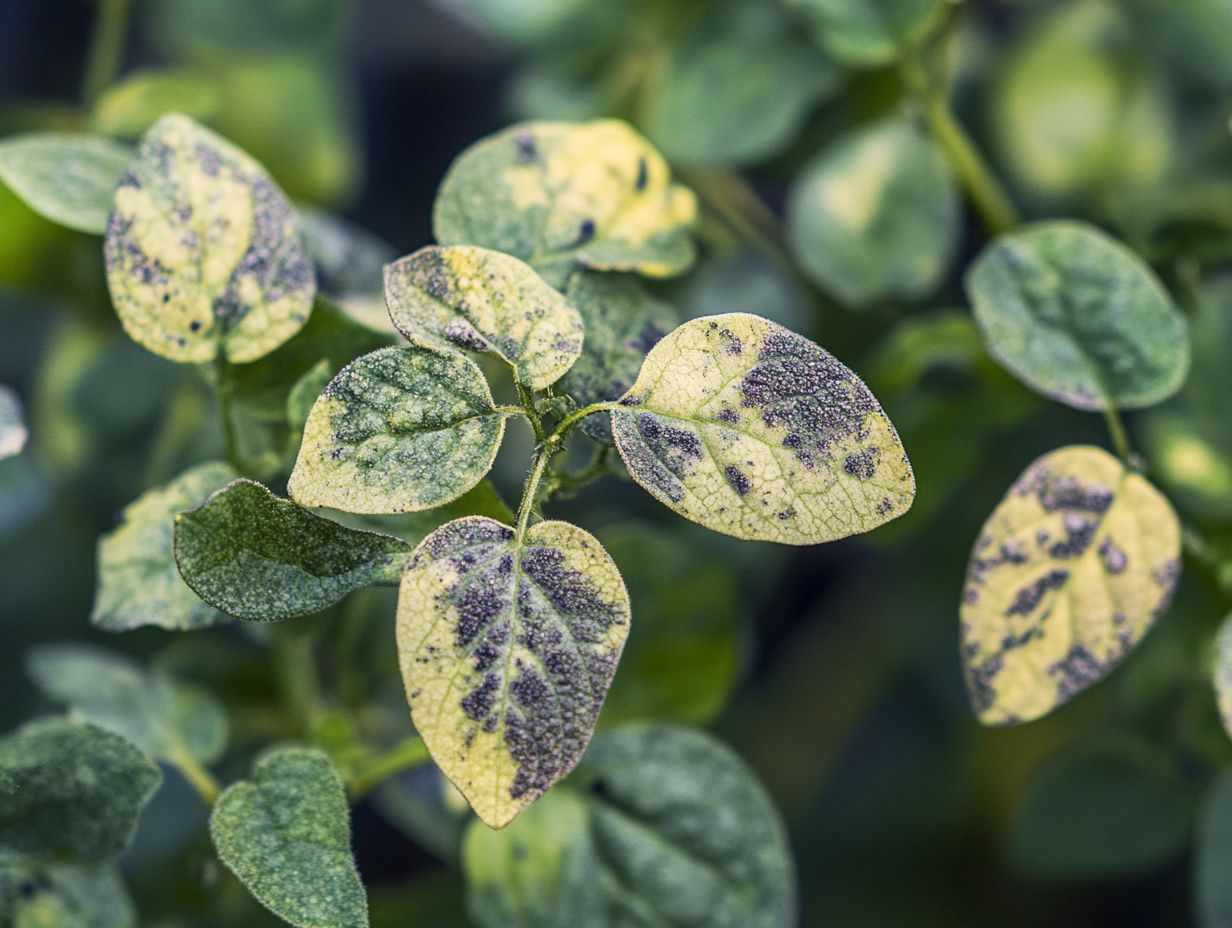
Managing and controlling fungal pests in your garden requires a holistic approach, blending immediate control methods with long-term strategies for sustainable gardening.
By integrating management techniques that focus on disease-resistant plant varieties and recognizing common diseases, you can cultivate healthier plants and significantly reduce the occurrence of fungal diseases.
Start using these practices today to see your garden thrive!
Long-Term Strategies for Prevention and Control
Implementing long-term strategies for the prevention and control of fungal pests is essential for cultivating a resilient garden ecosystem that mitigates viral diseases and fosters healthy plants. By utilizing a mix of different ways to manage pests, you can make informed decisions that align with evolving garden trends, all while promoting healthy plant growth.
These strategies are essential for a healthy garden and highlight the necessity of maintaining a balanced environment that actively discourages fungal infections, including Fusarium (a fungus that causes root rot) and Anthracnose (a disease that leads to leaf spots). Techniques such as crop rotation, proper spacing, and the introduction of beneficial microorganisms become your allies in this endeavor.
More gardeners are choosing holistic practices, incorporating organic mulches and compost to enrich soil health. This not only enhances nutrient availability but also fortifies your plants against potential threats.
By merging contemporary gardening trends with traditional wisdom, you can foster a thriving ecosystem that minimizes the risk of pest outbreaks and encourages robust growth. Regular monitoring and timely interventions, such as targeted organic treatments along with gardening advice, will further enable you to sustain the health of your plants effectively.
Frequently Asked Questions
Curious about common fungal pests in your garden?
Some common fungal pests that can be found in gardens include powdery mildew, black spot, and blight.
How can I identify powdery mildew in my garden?
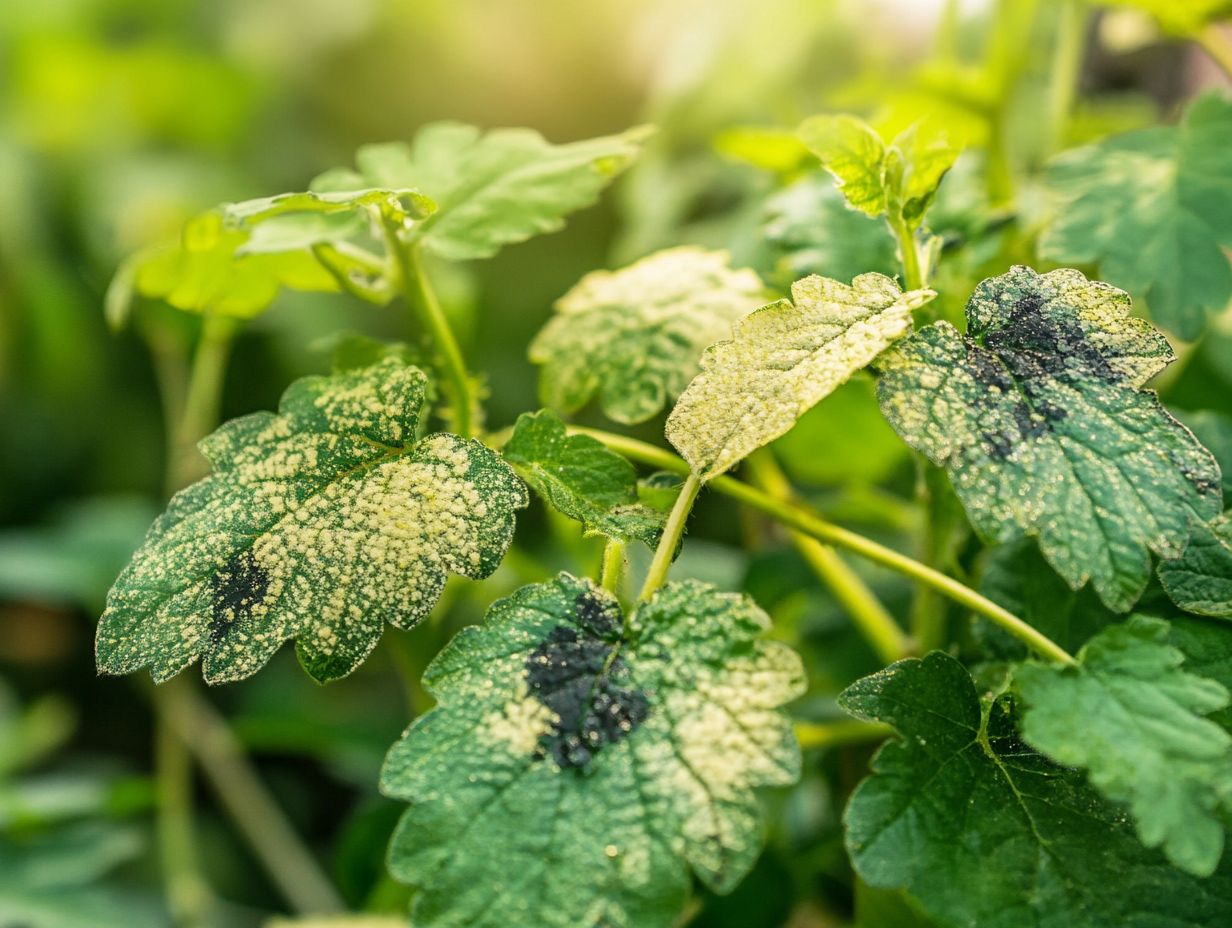
Powdery mildew is identified by a white or gray powdery substance on the leaves and stems of plants. It can also cause the leaves to curl and turn yellow or brown.
What is black spot and how do I know if my plants are affected?
Black spot is a fungal disease that causes dark spots to form on the leaves of plants, eventually causing them to turn yellow and fall off. It can also affect the stems and flowers of plants.
How do I spot blight in my garden?
Blight is a fungal disease that causes wilting and browning of leaves, as well as black or brown lesions on stems and fruits. The affected parts of the plant may also become soft and mushy.
What are some preventative measures I can take to avoid fungal pests in my garden?
To prevent fungal pests in your garden, make sure to properly space out your plants to allow for good air circulation, keep the garden clean and free of debris, and avoid overhead watering, which can promote the growth of fungal diseases.
Are there any natural remedies for treating fungal pests in gardens?
Yes, there are several natural remedies that can help treat fungal pests in gardens. These include spraying a mixture of water and baking soda on affected plants, using neem oil, or applying compost tea to boost the plant’s immune system. Understanding the symptoms of common diseases can help in early detection.
Act now to safeguard your garden!
Keep your garden healthy and thriving by staying informed!

